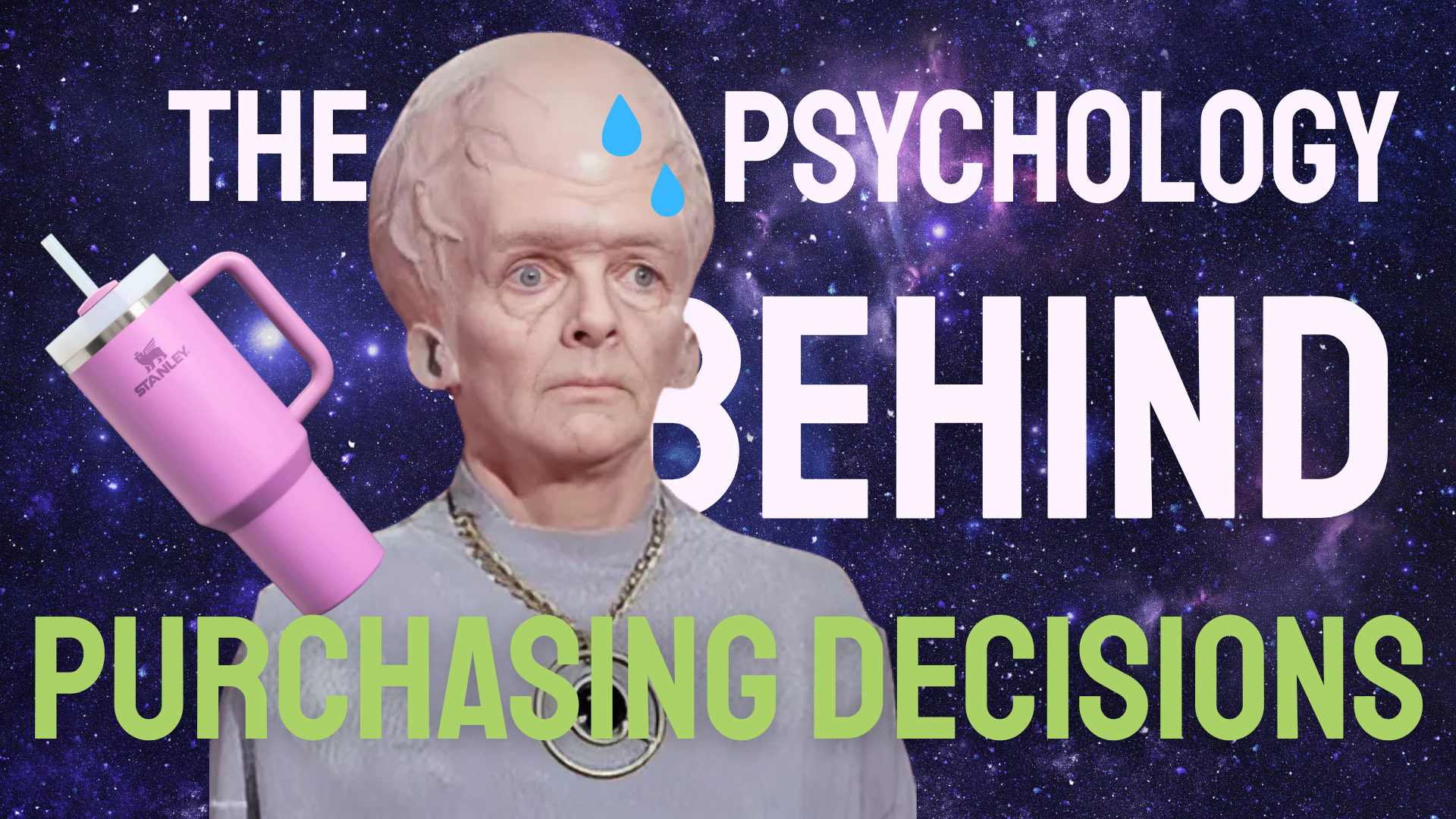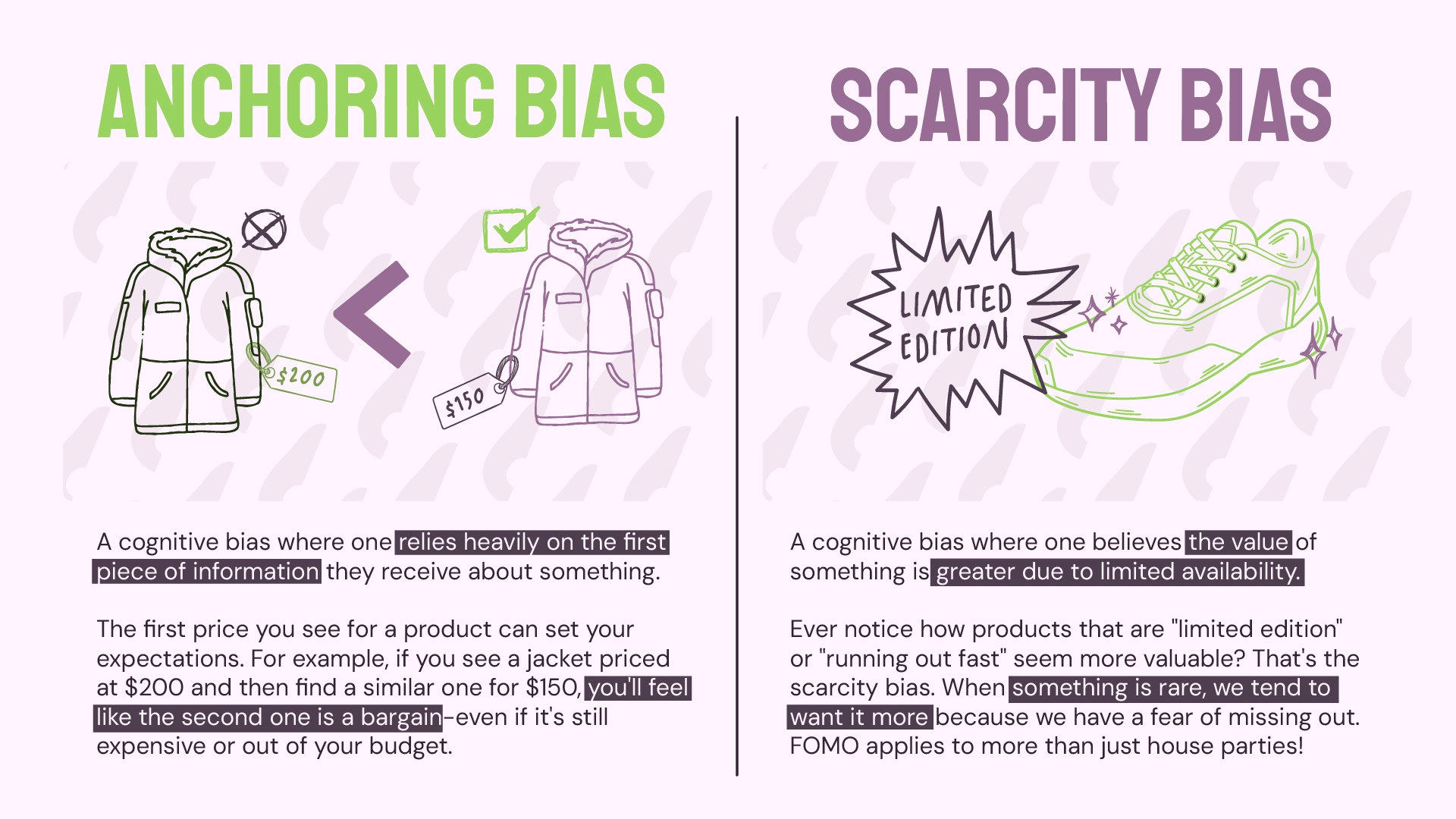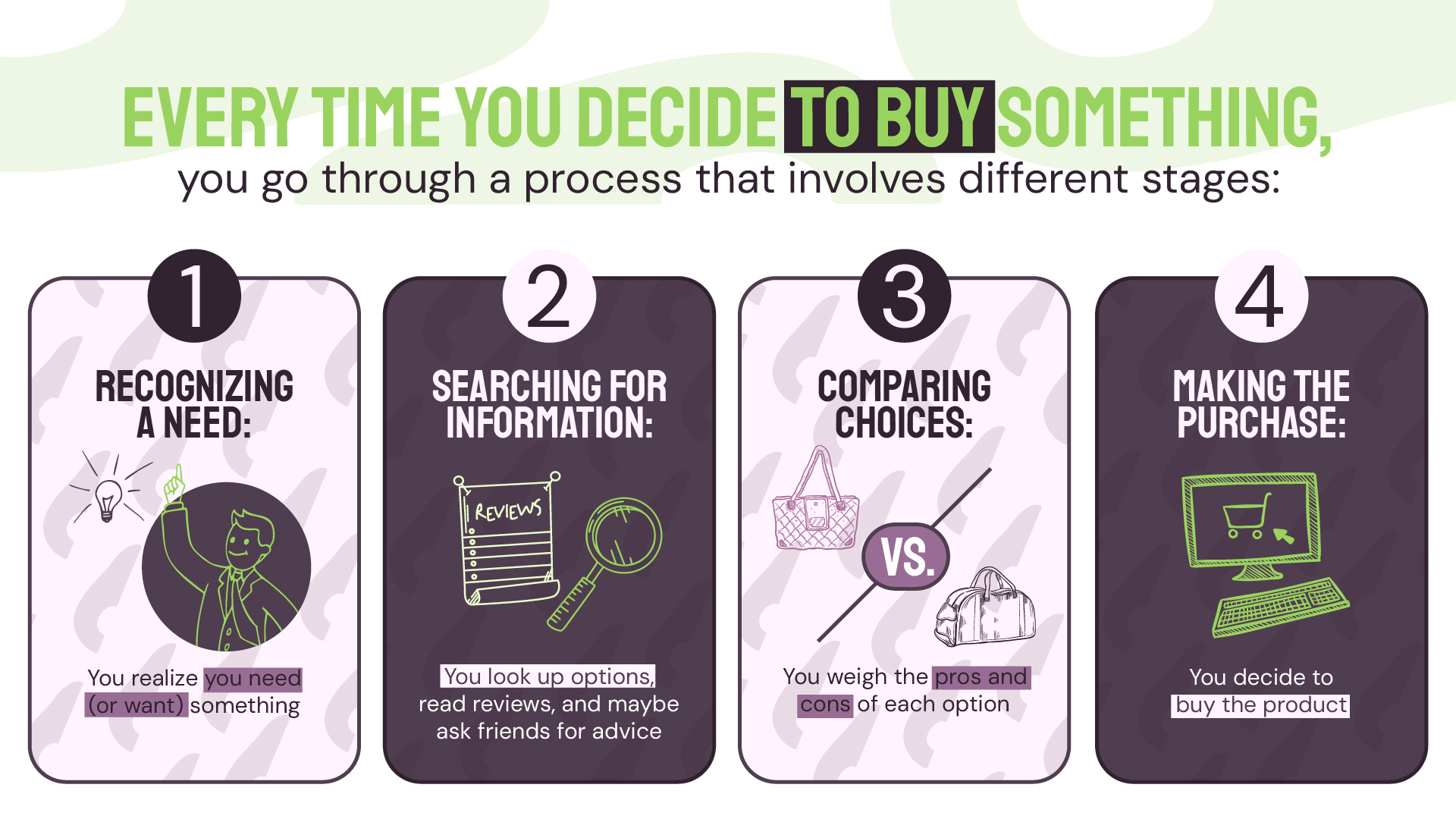The psychology behind purchasing decisions
Have you ever taken a harmless trip to the mall only to go on a unintended shopping spree? We are here to explain why this phenomenon happens so you can protect your budget!

Have you ever wondered why you buy certain products or feel drawn to specific brands? Whether it’s Labubus or a cozy sweater that just feels "right," your purchasing decisions are shaped by more than just logic.
A mix of emotions, social influence, and cognitive biases play a major role in your choices. Let’s break down how these factors influence our everyday buying habits so you can stop buying clothes you will never wear!
Emotional triggers
Emotions are powerful - sometimes a little too powerful. Often, the reason you pick one product over another comes down to how it makes you feel.
An ad showing a woman happily eating a tub of Ben & Jerry’s ice cream might make you associate the brand with joy. After a breakup, you might subconsciously find yourself craving Ben & Jerry’s ice cream. We've all been there.

Brands often try to connect with your emotions to make their products more appealing. If you feel happy, excited, or confident when thinking about a product, you're more likely to buy it.
Social influence
We all like to fit in and belong, and this desire is often reflected in what we buy. If you see your friends using a specific product or notice a celebrity endorsing a brand, it can impact your buying decisions.
Why? Because humans are social creatures, and we tend to follow trends or trust recommendations from people we admire.
That’s why businesses often encourage people to share their experiences online or get influencers to promote their products.
They know that if you see others enjoying something, you’ll be more inclined to want it too. Marketers take advantage of this social influence on social media (go figure!).
Have you ever wondered why every social media platform under the sun is free? It's because these platforms rake in billions in ad revenue. Instagram has 2 billion monthly active users globally.
Advertisers are willing to pay top-dollar to Instagram to get their products in front of these users.
Social influence is one of many tools greedy companies use to take advantage of consumers. These companies don't care about you, they only care about your wallet.
Cognitive biases
We all have little mental habits, called cognitive biases, that affect how we make decisions.
These biases act as shortcuts to help us process information quickly, but they can also influence how we shop. Here are two common biases:

Marketers use these mental tricks to make products seem more appealing without you even realizing it. Keeping these cognitive biases in mind will help you catch yourself before you fall victim to tricky marketing tactics.
Understanding the thought process behind every purchase will also help you protect yourself.

Throughout this process, your emotions, the opinions of others, and even cognitive biases all come into play.
If businesses understand this process, they can provide the right information at each stage to help you feel confident about your decision.
Just like your ex, these companies are trying to gaslight you into thinking you are making a good purchasing decision.
A tip to help you take control
The only thing standing between you and an unnecessarily expensive jacket or five pairs of jeans you don't need is you.
Just like breaking a habit or trying to stick to a diet, taking control of your purchasing decisions takes discipline. Here's how you can make staying in control easier!
Make a list! Yes, it's that simple. Instead of giving in to impulse purchases, create a list of items you want. If you find the same purse a celebrity wore at a recent Red Carpet event, don't buy it. Add it to your list.
If you forget about it over the next few days, odds are you only wanted it because it was trendy. Since you didn't actually want or need it, axe it from the list.
A list will hold you accountable and give you a space to define your wants without acting on them.
Not only will keeping a list help you save money, but it will also save you the mental anguish of asking yourself why you bought a popcorn maker when you don't even like popcorn.
TL;DR
Understanding the psychology behind why we make certain purchases helps explain how businesses influence our decisions. It’s all about emotions, social influence, and mental shortcuts.
So, the next time you’re about to make a purchase, take a moment to think: Are you buying with your heart, following a trend, or responding to a clever marketing tactic?
Either way, knowing what drives your choices and getting into the habit of second-guessing your purchases will make you a conscious consumer and help you save money.
